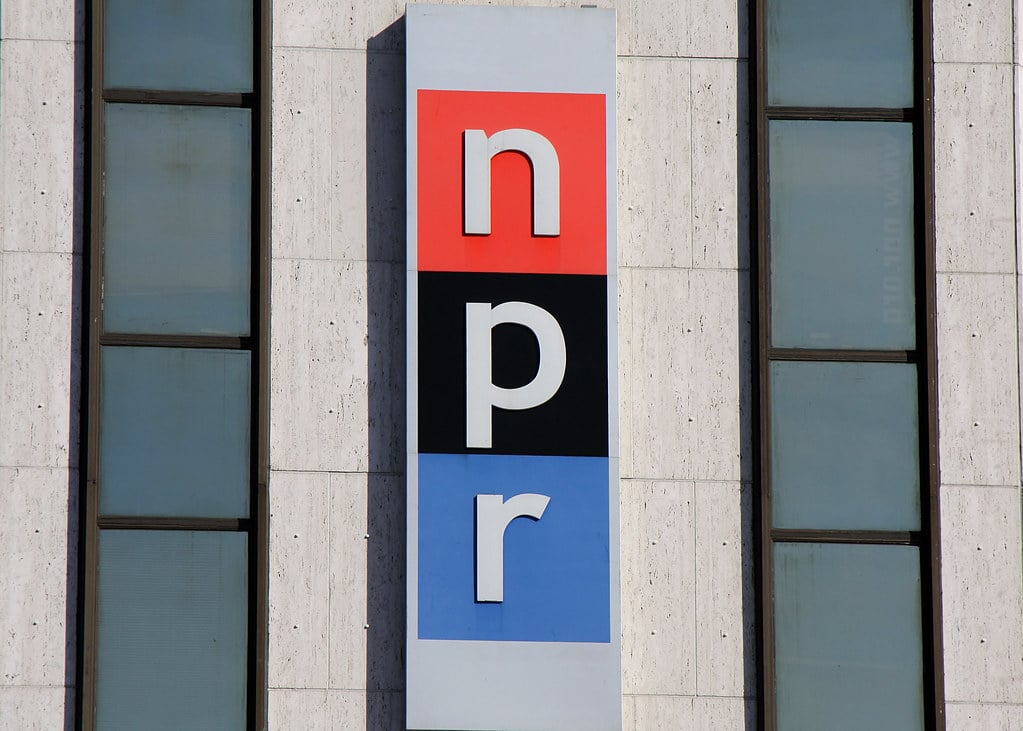One of the hallmarks of authoritarian countries is that the media is state-run or under the direct supervision or control of the government.
The Xinhua News Agency is the official state news agency in China. Al-Akhbar, Al-Ahram, and Al-Gomhuriya are state-owned national newspapers in Egypt. Cuba prohibits privately owned media.
According to Reporters Without Borders, China, Egypt, and Cuba are ranked near the bottom of its 2022 Press Freedom Index, along with Myanmar, Vietnam, Iraq, and Saudi Arabia. The top five countries for press freedom are Norway, Denmark, Sweden, Estonia, and Finland. The United States—the land of the free—ranks 42, behind such countries as Argentina, Ivory Coast, and Slovakia.
The closest thing we have to state media in the United States is NPR, which began broadcasting in 1971 as National Public Radio.
According to an NPR “Fact Sheet,” as of February 2023, NPR had 1,107 employees, 1,066 stations broadcasting NPR programming and newscasts, 1,050 member stations, 18 international bureaus, 18 domestic bureaus, and 30.7 million weekly listeners for all NPR stations.
NPR’s mission is “to work in partnership with Member Stations to create a more informed public—one challenged and invigorated by a deeper understanding and appreciation of events, ideas and cultures.”
NPR’s key strategic priority in 2021 was to over the next three years “expand NPR’s audience to reflect what America will look and sound like in 2021 and beyond, attracting a more diverse audience to our journalism and cultural content, with an emphasis on Black and Hispanic audiences on all platforms.”
Funding for NPR was originally provided by the Corporation for Public Broadcasting (CPB), which was created by the Public Broadcasting Act of 1967. In 1985, after NPR had run up a deficit of nearly $7 million, the CPB loaned NPR money and changed the way it supported NPR from directly to indirectly via member stations. Other financial crises have plagued NPR since then.
NPR is again in financial trouble. Staff cuts of 10 percent and the elimination of dozens of vacant positions have been announced, and four podcasts it produces have been canceled. “We literally are fighting to secure the future of NPR at this very moment by restructuring our cost structure,” said NPR chief executive John Lansing. A number of longtime NPR staffers have seen the handwriting on the wall and chosen to leave.
Current funding for NPR comes from corporate sponsorships, core and other programming fees, contributions, other revenues, satellite interconnection and distribution, endowments, board-designated support, and investments.
What most Americans don’t realize about NPR is that its government funding is miniscule. NPR receives a very small amount of direct funding from the CPB. Member stations that pay NPR for the privilege of broadcasting popular programs like Morning Edition and All Things Considered receive only about 8 percent of their revenue via the CPB.
But the issue here is not how NPR is funded or how much government, that is, taxpayer, money flows to NPR. The issue is also not whether NPR manifests a liberal bias, censors conservative viewpoints, or promotes a woke ideology (it does all three). The issue is the very existence of NPR in the first place.
The Constitution nowhere authorizes the federal government to operate or fund a media organization. It doesn’t matter if it is media geared toward a domestic audience, like NPR or the Public Broadcasting Service (PBS); foreign audiences, like Voice of America (VOA), Radio Free Europe (RFE), Radio Liberty (RL), the Office of Cuba Broadcasting (OCB), Radio Free Asia (RFA), the Middle East Broadcasting Networks (MBN); or any other part of the U.S. Agency for Global Media (USAGM).
It is not the proper role of government to engage in “public” broadcasting or any other kind of broadcasting. Once it is accepted that it is legitimate for the government to do so, no reasonable or logical argument can be made against the government’s providing any other communications service: home phone service, cell phone service, website hosting, television service, Internet access, or on-demand movies and shows.
The reporting and analysis of news, the providing of information like weather and sporting events results, and the supplying of cultural and entertainment programming is a service that can and should be left up to the free market.
It is a marvel that, in this digital age, NPR still exists. It should be shut down or completely privatized and not take another dime—directly or indirectly—of government money, as should PBS, the CPB, and the USAGM.
This article was originally featured at the Future of Freedom Foundation and is republished with permission.







